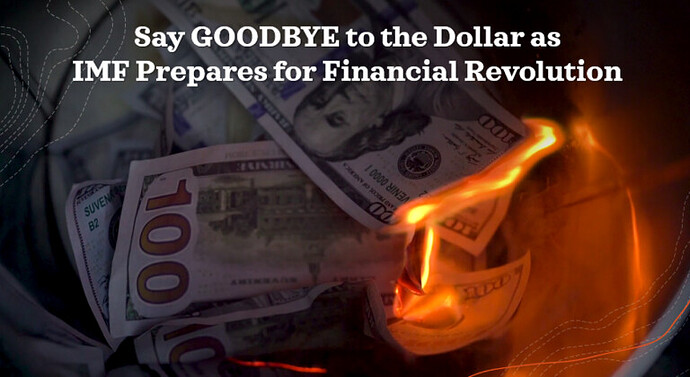Say GOODBYE to the Dollar as IMF Prepares for Financial Revolution.
By Patricia Harrity on April 12, 2024
The Bretton-Woods Agreement of 1944 established the framework for the rise of the U.S. dollar and its status as the global reserve currency which has its obvious benefits for the US, but there are also numerous costs involved, according to Brandon Smith, who writes “Think of world reserve status as a “deal with the devil. You get the fame, you get the fortune, you get trophy dates and a sweet car – for a while. Then one day the devil comes to collect, and when he does he’s going to take everything, including your soul.”
“Unfortunately, I suspect collection time is coming soon for the U.S“.
IMF Prepares Financial Revolution – Say GOODBYE to the Dollar
Written by Brandon Smith and originally published on The Burning Platform

The Bretton-Woods Agreement of 1944 established the framework for the rise of the U.S. dollar. While the benefits are obvious, especially for the U.S., there are numerous costs involved. Think of world reserve status as a “deal with the devil.” You get the fame, you get the fortune, you get trophy dates and a sweet car – for a while. Then one day the devil comes to collect, and when he does he’s going to take everything, including your soul.
Unfortunately, I suspect collection time is coming soon for the U.S.
Global reserve currency status allows for amazing latitude in terms of monetary policy. The Treasury Department understands that there is constant demand for dollars overseas as a means to more easily import and export goods. The petrodollar monopoly made the U.S. dollar essential for trading oil globally for decades.
This means that the central bank of the U.S. has been able to create fiat currency from thin air to a far higher degree than any other central bank on the planet while avoiding the immediate effects of hyperinflation.
CBDCs automatically end the dollar’s global reserve currency status
Continued at link...
